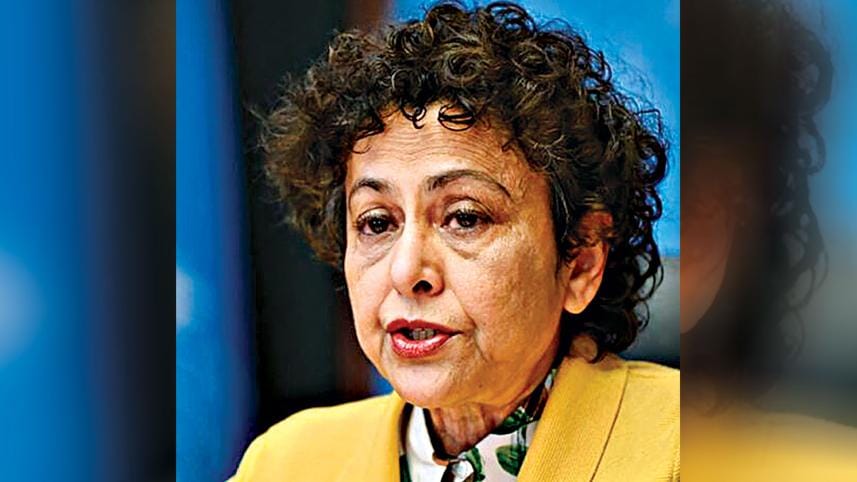Media commission shouldn’t be a vehicle for censorship

Free media is a pillar of democratic society but under threat in many parts of the world, says Irene Khan, the UN special rapporteur for freedom of expression and opinion, during an interview with The Daily Star.
She notes that the press in Bangladesh was decimated by the previous regime under former prime minister Sheikh Hasina. "The media sector was almost totally captured and subjugated -- so much so that many journalists became demoralised and left the profession. Very few outlets had the courage to speak truth to power."
A former head of the global human rights organisation Amnesty International, Irene explains that freedom of expression is a fundamental human right, protected by international law. It can be restricted only in certain limited circumstances that must be clearly and narrowly defined by law and must be necessary and proportionate. "But the Hasina regime introduced draconian laws that went far beyond what is permitted by international law and used them to harass and gag the media."
While the interim government should carry out reforms to protect and strengthen media freedom, Irene believes that in Bangladesh's current situation the media must also make some important changes.
"People don't trust the press," says Irene. "Most media outlets peddled the lies of the previous regime without hesitation. Their journalistic standards are very low. Disinformation and misinformation proliferate, and journalists don't do much fact-checking."
"Journalism serves a valuable function by informing the public, exposing wrongdoing and holding the powerful to account. But that kind of public service journalism requires journalists to abide by certain principles and professional standards, and above all, demonstrate an unequivocal commitment to truth."
"Responsible self-regulation by the media sector is missing in Bangladesh."
Asked about the interim government's proposal to set up a media commission, Irene says it is not yet clear what this commission will do. She cautions the government against using the commission to tighten state control over the media.
"Countries with high state regulation of the media -- Iran or China for instance -- have no media freedom nor public trust in information.
"In a democratic society, state regulation of the media should be light so that diverse ideas, information and perspectives can flow freely from a wide range of sources. The media commission should not be a vehicle for censorship."
Irenebelieves that a media commission, composed of media representatives, legal experts and civil society, could play a useful role in establishing journalism standards and a code of ethics, ensuring compliance, encouraging skills and capacity development, and promoting good practices in the media sector. "To be credible and effective, such a commission must be independent and free from political influence," Irene adds.
The media commission could also receive, investigate and address complaints from the public about the media. "A national media ombudsman could be another option."
When asked to identify the main threats to media freedom, Irenehighlights attacks on journalists with impunity, legal harassment, and opaque governance and ownership of media.
"Bloggers have been murdered in this country. The case of Sagar and Runi is unresolved. Local journalists were attacked in the past and some face attacks even now," she says, referring to the string of murders in 2016, the gruesome killing of a journalist couple in 2012 and recent attacks and threats against journalists.
She explains that the killing of one journalist can silence many others. "There is a dangerous chilling effect, which makes it doubly important for the government to protect journalists and end impunity."
On legal harassment, Irenecites the use of the Digital Security Act and Cyber Security Act by the Hasina regime to bring the "online space under control". She also mentions that the offense of criminal libel was used by the previous regime to prosecute journalists and editors.
"There is no place for these oppressive laws in a democratic state, and the interim government should repeal them and dismiss the cases pending against journalists without delay," she says.
"There is considerable political influence over the media through ownership or financial incentives." Big business houses or powerful politicians own almost all media outlets in Bangladesh. The previous government also leveraged the state advertisement budget to reward or punish the press.
The government should introduce rules to ensure that media ownership is not concentrated in the hands of a few powerful people. It should encourage transparent, good governance of media outlets, so that editorial independence is not compromised, says Irene. "Such reforms will help create public trust."
"Public interest journalism is a public good, the government must protect it, together with freedom of expression."




 For all latest news, follow The Daily Star's Google News channel.
For all latest news, follow The Daily Star's Google News channel.
Comments